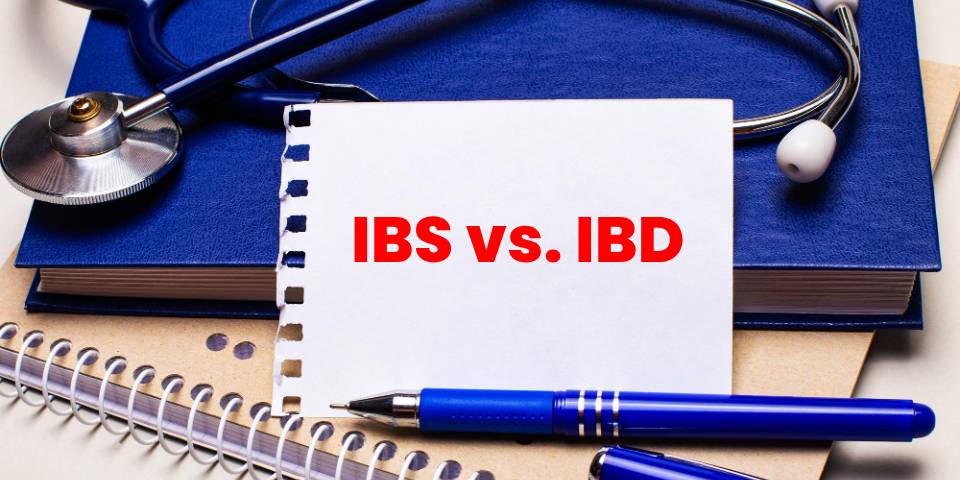
- October 26, 2023
- Dr. Vikrant Kale
- 0 Comments
- Latest Blogs
IBS vs. IBD: Understanding the Key Difference
In the realm of gastrointestinal diseases, the acronyms IBS and IBD are frequently used, often causing confusion due to their similarities in name and symptoms. However, it’s vital to recognize that IBS (Irritable Bowel Syndrome) and IBD (Inflammatory Bowel Disease) are distinct disorders with different underlying causes and management strategies. In this blog, Dr. Vikrant Kale, the best IBD specialist in Pune, Maharashtra, will guide you through the key differences between IBS vs. IBD to help gain a better understanding of these gastrointestinal conditions and manage them.
Understanding IBS: Irritable Bowel Syndrome
Irritable Bowel Syndrome, commonly referred to as IBS, is a functional gastrointestinal disease. Unlike IBD, IBS does not cause inflammation or damage to the intestines. Instead, it affects the way the digestive system functions. Here are some key points to consider:
- Non-inflammatory: Unlike IBD, IBS is a non-inflammatory condition. There is no evidence of inflammation, ulcers, or structural abnormalities in the gastrointestinal tract. It is often considered a functional disease, meaning the bowel seems normal under examination.
- Symptoms: IBS primarily presents with symptoms such as abdominal pain, bloating, and changes in bowel habits, including diarrhea, constipation, or both. These symptoms often occur without any visible signs of damage to the digestive tract.
- Cause: The exact cause of IBS is not fully understood, but it is believed to be related to issues with the gut-brain axis, heightened sensitivity in the intestines, hormonal changes, and diet and lifestyle factors. It is a highly individualized condition, and what exacerbates one person’s symptoms may not affect another.
- Diagnosis: The diagnosis of IBS is based on the presence of specific signs, the exclusion of other medical conditions, and adherence to certain diagnostic criteria, such as the Rome Criteria. It usually does not need invasive tests like colonoscopy or biopsy.
- Treatment: Management of IBS involves dietary modifications, stress management, and medications to relieve symptoms. It does not typically require potent immunosuppressive drugs.
Understanding IBD: Inflammatory Bowel Disease
Inflammatory Bowel Disease (IBD) refers to a group of chronic conditions that cause inflammation and damage to the gastrointestinal tract. The two main types of IBD are Ulcerative Colitis and Crohn’s disease. Here are some key characteristics of IBD:
- Inflammatory: IBD is characterized by chronic inflammation in the gastrointestinal tract. This inflammation can lead to ulcers, strictures, and other structural abnormalities in the digestive system.
- Symptoms: IBD is marked by symptoms such as abdominal pain, diarrhea, weight loss, fatigue, and visible inflammation in the digestive tract. These conditions often cause difficulties like strictures, fistulas, ulcers, or bowel obstructions.
- Cause: IBD is believed to be an autoimmune condition where the immune system mistakenly attacks the digestive tract. Genetic and environmental aspects also play a role in its evolution. This is in contrast to IBS, which is not an autoimmune disorder.
- Diagnosis: Diagnosing IBD often involves invasive techniques like endoscopy and colonoscopy to visualize the inflamed areas and take tissue samples for analysis. Blood tests and imaging studies may also be used in the diagnostic process.
- Treatment: IBD often requires more aggressive treatment, including immunosuppressive medicines, anti-inflammatory drugs, and, in severe cases, surgery to remove affected sections of the intestines.
Key Differences Between IBS and IBD:
- Inflammation: The presence of inflammation is the most significant difference between IBS and IBD. IBS is non-inflammatory, while IBD is characterized by chronic inflammation and damage to the digestive tract. IBS primarily affects bowel habits and is usually associated with abdominal discomfort, while IBD involves a range of gastrointestinal symptoms and complications.
- Diagnosis: Diagnosing IBD generally requires invasive techniques and specific tests, while IBS is diagnosed based on symptom criteria and the exclusion of other disorders.
- Structural Abnormalities: IBS doesn’t lead to intestinal damage or an improved risk of colorectal cancer. With proper management, many people with IBS can lead normal lives, whereas IBD is a chronic condition with a higher risk of complications, including bowel strictures, fistulas, and an increased risk of colorectal cancer. It needs ongoing medical management and monitoring.
- Treatment: Treatment strategies differ, with IBS management often focused on symptom management, and dietary and lifestyle changes, while IBD may require medications to control inflammation and, in some cases, surgery.
Conclusion:
Understanding the fundamental differences between IBS vs. IBD is vital for accurate diagnosis and effective management. If you suspect you have a gastrointestinal condition, it is important to consult with the best gastroenterologist in Pune, Maharashtra, Dr. Vikrant Kale, for a proper evaluation. Dr. Vikrant Kale emphasizes the importance of understanding these differences to promote better patient outcomes and quality of life for individuals with IBS or IBD.
Stay informed, stay healthy!

